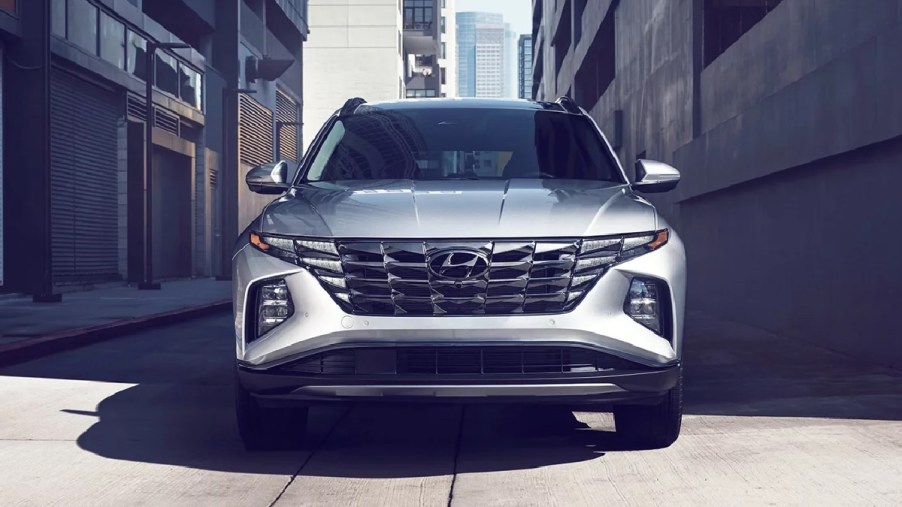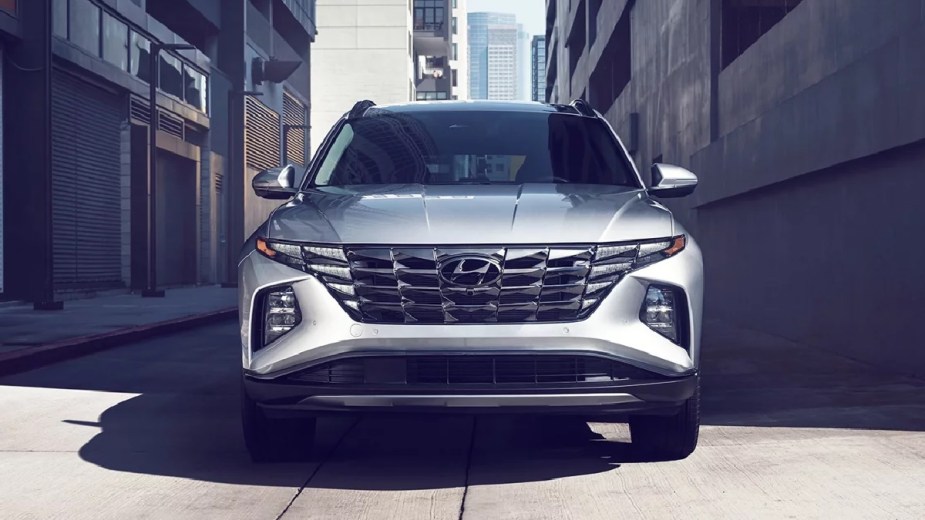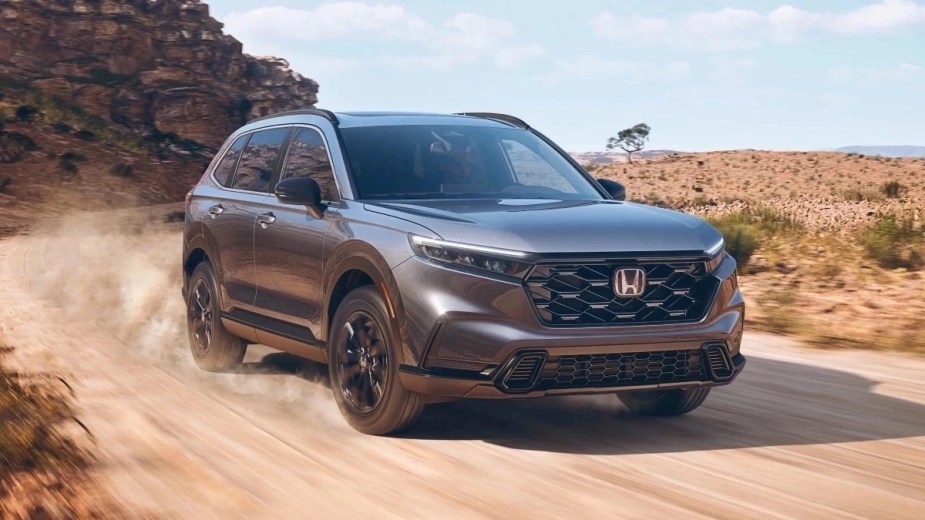
2023 Hyundai Tucson Has 1 Big Thing Honda CR-V Doesn’t Offer
The Hyundai Tucson is one of the best compact crossover SUVs available. It stacks up very well against its competitors, including the Honda CR-V. While the CR-V is improved for the 2023 model year with a complete overhaul, it lacks an important element. The 2023 Hyundai Tucson has one big thing that the 2023 Honda CR-V doesn’t offer: an efficient plug-in hybrid (PHEV) model.
2023 Hyundai Tucson offers an efficient plug-in hybrid model — but the 2023 Honda CR-V does not

Both the 2023 Hyundai Tucson and the 2023 Honda CR-V crossover SUVs offer traditional hybrid models. However, contrary to the CR-V, the Tucson has an efficient plug-in hybrid model. A major benefit of a plug-in hybrid is the ability to drive with electric-only power for short distances. The Tucson PHEV has an estimated electric-only range of 33 miles.
Plug-in hybrids like the Tucson PHEV are also a good alternative to electric cars. EVs are the wave of the future and are dramatically increasing in popularity. However, some drivers are not yet ready to go all-electric. Plug-in hybrids nicely bridge the gap between gas-powered cars and EVs by providing the “best of both worlds.”
A common concern for EVs is “range anxiety,” or the fear of running out of battery power before they can make it back home or reach a charging station. However, the Tucson Plug-In Hybrid doesn’t have this concern. Once the EV battery power is depleted, it can switch to power from the gas engine.
2023 Tucson Plug-In Hybrid has higher fuel economy than all 2023 CR-V models

The biggest benefit of the plug-in hybrid system in the 2023 Hyundai Tucson PHEV is high fuel economy. While gasoline is not as expensive as it was in 2022, it’s still one of the most significant costs for vehicle owners. An efficient crossover SUV like the Tucson Plug-In Hybrid helps alleviate this financial burden. Drivers can save a great deal of money over the long haul at the fuel pump.
The Tucson Plug-In Hybrid has an estimated fuel efficiency rating of up to 84 MPGe in electric-only mode and 35 combined mpg in hybrid mode. Also, even if you get the standard Tucson Hybrid model, you can still benefit from high fuel economy. It gets an estimated gas mileage of up to 43 combined mpg. In comparison, the 2023 Honda CR-V Hybrid, the most efficient CR-V model, has an estimated fuel economy of up to 40 combined mpg.
Another benefit of the Tucson Plug-In Hybrid is convenience. With lower fuel consumption, it doesn’t have to make as many stops at gas stations as any of the CR-V models.
Additional strengths of the Hyundai Tucson over the Honda CR-V
In addition to its efficient plug-in hybrid model, the 2023 Tucson crossover SUV has other strengths over the 2023 CR-V. This includes longer warranty coverage. The Tucson offers a 5-year/60,000-mile basic warranty and a 10-year/100,000-mile powertrain warranty, compared to a 3-year/36,000-mile basic warranty and a 5-year/60,000-mile powertrain warranty for the CR-V.
Also, the Tucson provides more cargo space, with a rear storage capacity of 38.7 cu-ft and a maximum cargo capacity of 80.3 cu-ft. The CR-V only has 36.3 cu-ft of rear storage space and 76.5 cu-ft of overall storage.
Plus, the Tucson is better for off-road use and driving in adverse weather conditions, such as snow — especially with the XRT off-road trim. Furthermore, the Tucson has a lower starting price than the CR-V ($26,450 vs. $31,610 MSRP).
With its efficient plug-in hybrid model, the 2023 Hyundai Tucson has a big thing that the 2023 Honda CR-V doesn’t offer. When making a decision about which crossover SUV to get, this is an important factor to consider.


